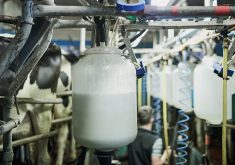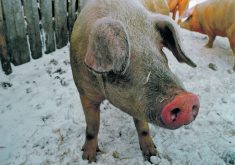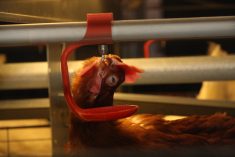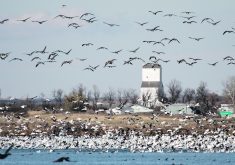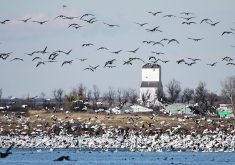The federal government has banned imports ranging from eggs and live poultry to raw pet foods from restricted zones in the United States affected by avian influenza.
The July 20 decision involved areas within 20 American states hit by the disease.
“The current restrictions apply to both commercial transporters and travelers,” Erin Paul, spokesperson for the Canadian Food Inspection Agency, said in an email.
“Travelers should know that, due to this outbreak, all raw poultry and all poultry products and byproducts that are not fully cooked and canned or hermetically sealed, including eggs and raw pet foods, sourced, processed, or packaged from the restricted zones… are prohibited until further notice. You may not bring these items into Canada.”
Read Also

Government, industry seek canola tariff resolution
Governments and industry continue to discuss how best to deal with Chinese tariffs on Canadian agricultural products, particularly canola.
American chicken producers mostly export to markets such as Mexico, said Lisa Bishop-Spencer, director of brand and communications for Chicken Farmers of Canada. However, the unusual virulence and widespread nature of this year’s avian influenza outbreaks has Canadian producers worried about what the virus will do next, she said.
Although outbreaks have largely ebbed in Canada with the end of the spring migration of wild fowl, the disease could return with the fall migration, she said. There is also some concern that such outbreaks could potentially even become a yearly event, she added.
“Yeah, that’s something that we’re on the alert for. We’re working extremely closely with the Canadian Food Inspection Agency, whose authority avian influenza falls under.”
The disease has affected Canadian poultry and egg producers in an unprecedented nine provinces since the start of this year, she said. It caused the deaths of nearly two million birds as of early June from the illness and from culling.
“This serves as a strong reminder that avian influenza is spreading across the globe, and that anyone with farm animals must practise good biosecurity habits,” said a CFIA statement.
The agency advised commercial importers to refer to its Automated Import Reference System for more information on restricted products from the U.S. All live birds, including poultry and hatching eggs, have also been barred from “transiting through the restricted zones or any part of states that are completely banned,” it said.
Such measures are not due to concerns about avian influenza making food unsafe for consumption by Canadians, said the statement.
“There is no evidence to suggest that eating cooked poultry or eggs could transmit (it) to humans.”
It said the restrictions are meant to protect Canada’s poultry industry from outbreaks in Colorado, Idaho, Indiana, Iowa, Kansas, Maine, Maryland, Michigan, Minnesota, Missouri, New Jersey, New York, North Carolina, North Dakota, Oregon, Pennsylvania, South Dakota, Utah, Washington and Wisconsin.
Canadians who buy eggs or poultry in the U.S. must ensure they have proof such items originated from and were purchased in a region other than those that are restricted, said the statement.
“If the product is not labelled with the state of origin by the manufacturer, the product may be denied entry.”
Contact doug.ferguson@producer.com







